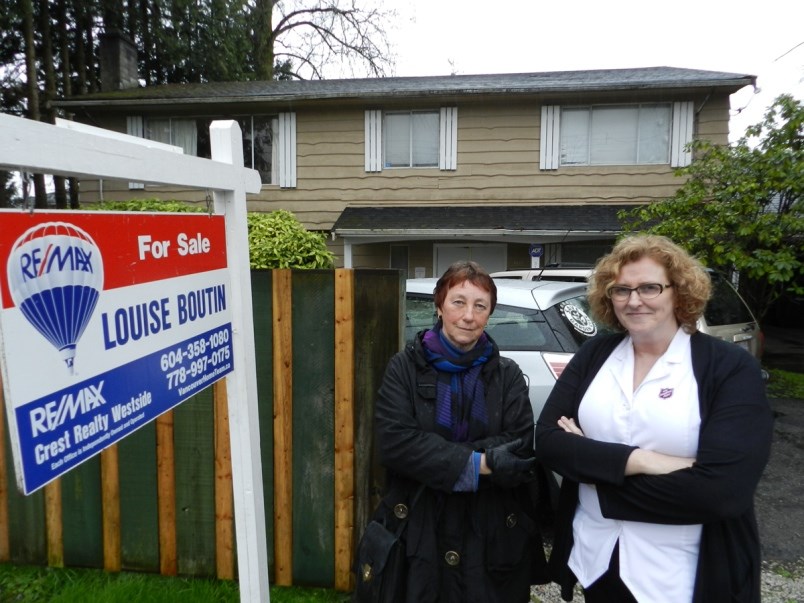If things go to schedule, Richmond could have a new, much larger homeless shelter for both men and women by next September.
That’s the hope of the Richmond Salvation Army’s Maj. Kathie Chiu, who is heading the search to purchase a new property to replace the 10-bed, men-only facility whose lease expires in around 10 months. The current property on Shell Road was sold last spring and the new owner, a developer, has given the shelter operator notice they will need to move before next Labour Day.
Chiu said she, the city, other agencies and community groups have been in discussions since before the sale and have been told by BC Housing that it will fund a new shelter for the city’s homeless.
“We have been given the green light to go out and find a suitable property,” she told the News, adding no set budget has been laid out. “We just have to go out and find a property that would work for us.”
Given the high cost of real estate in Richmond — the current average price for a single family home here is listed at around $1.68 million, according to the Greater Vancouver Real Estate Board — Chiu said she will be looking for a property in a hopefully, less expensive, light industrial area of the city that can accommodate 35 beds, a portion of which would be segregated for women. Richmond does not currently have a women’s shelter.
“I am very excited about the opportunity to find a new home for the shelter and for having room for women,” she said. “We are turning men away from the current shelter pretty much every single day and it’s heart-breaking.
“We have a waiting list most of the time.”
Making matters worse is the fact the shelter acts as an overflow when the city’s extreme weather shelter is full.
A new shelter site would, ideally, have enough room for accommodation, or enough property surrounding it to erect portable-type buildings to provide the needed space, Chiu said.
While the deadline to find a new home is nine months away, Chiu said a contingency plan may see the shelter operated out of a temporary site if a new, permanent one is not found in time.



